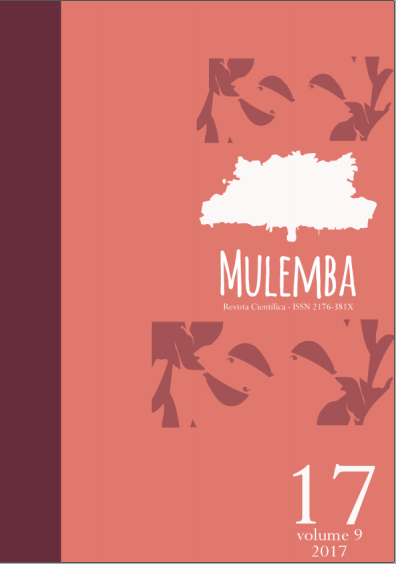Virgem Margarida y A Última Prostituta: la Muerte de los Límites entre el Documental y la Ficción?
DOI:
https://doi.org/10.35520/mulemba.2017.v9n17a14601Palabras clave:
documental, ficción, representación, sentidosResumen
En Mozambique, como en muchas otras partes del mundo, el cine, hoy, asume confguraciones referentes a géneros y modos dinámicas e innovadoras, principalmente en la perspectiva ética y estética. Teniendo como objeto de reflexión A última prostituta yVirgem Margarida, ambos de Licinio de Azevedo, el artículo pretende discutir las fronteras entre el cine documental y el de fcción. A la luz de las teorías y prácticas cinematográfcas se aproximan lecturas interdisciplinares e intertextuales que ligan imagen, teorías y prácticas de representación y de memoria que permiten asociar técnicas y efectos semánticos, a partir de estructuras que funcionan como signos y valores constructores de sentidos. La reflexión es fundamentalmente un llamado a reflexiones que tomen a los objetos - obras cinematográfcas - como textos que se insertan en contextos distintos y que indagan el mundo, convocando visiones plurales y dinámicas.Descargas
Descargas
Publicado
Número
Sección
Licencia
Los autores que publican en esta revista concuerdan con los siguientes términos:
- Los autores mantienen los derechos autorales y conceden a la revista el derecho de primera publicación, con el trabajo simultáneamente licenciado bajo la Licencia Creative Commons Attribution que permite compartir el trabajo con reconocimiento de la autoría y publicación inicial en esta revista.
- Los autores tienen autorización para asumir contratos adicionales separadamente, para distribución no exclusiva de la versión del trabajo publicada en esta revista (ej.: publicar en repositorio institucional o como capítulo de libro), con reconocimiento de autoría y publicación inicial en esta revista.
- Los autores tienen permiso y son estimulados a publicar y distribuir su trabajo online (ej.: en repositorios institucionales o en su página personal) en cualquier momento antes o durante el proceso editorial, ya que eso puede generar alteraciones productivas, así como aumentar el impacto y la citación del trabajo publicado (Vea El Efecto del Acceso Libre).

